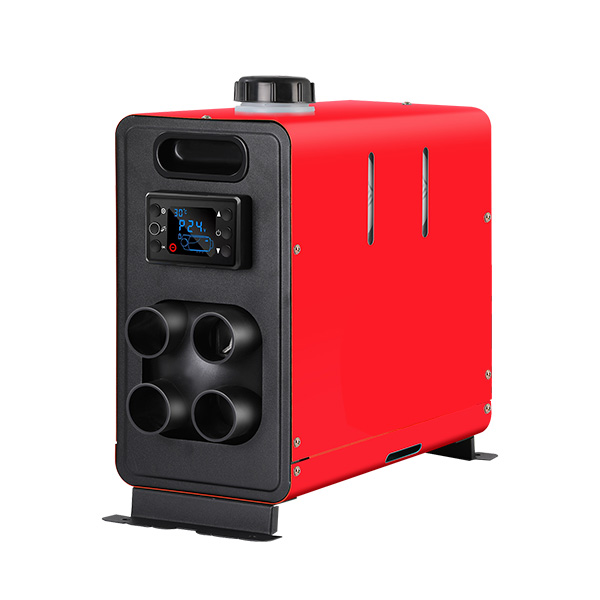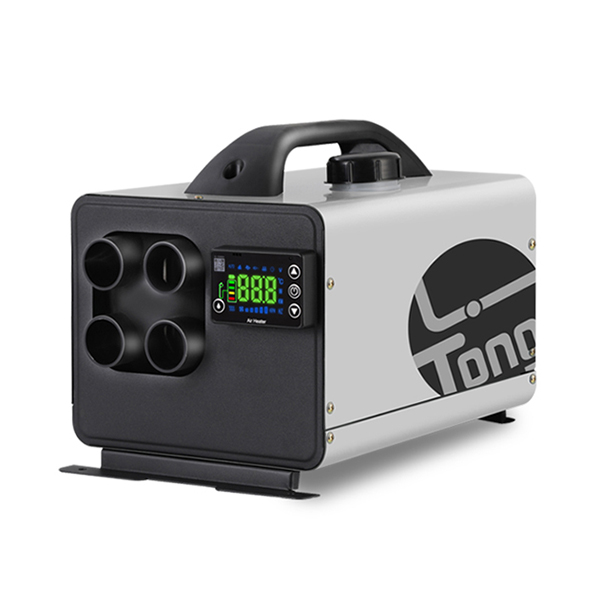
Introduction to Parking Heater Myths
Parking heaters are widely used in vehicles to preheat the cabin and engine, providing comfort and reducing engine wear in cold weather. However, several common myths and misconceptions surround their use, leading to inefficient operation or even potential damage. Understanding the facts about parking heaters, along with proper usage and maintenance, ensures optimal performance, safety, and longevity.


Myth 1: Parking Heaters Drain the Battery Excessively
Reality: While electric parking heaters draw power from the battery, modern systems are designed for low power consumption. Diesel or fuel-powered heaters operate independently of the battery. Running an electric heater for 30–60 minutes before driving is usually safe for fully charged batteries.
Usage Tip:
· Ensure your battery is in good condition.
· Use timers or smart controls to prevent unnecessary operation.
Myth 2: Parking Heaters Consume Too Much Fuel or Electricity
Reality: Parking heaters are engineered for efficiency. Fuel-powered models typically consume 0.1–0.5 liters per hour, while electric heaters draw 1–3 kW of power. The cost is minimal compared to idling the main engine for the same heating effect.
Usage Tip:
· Run the heater only as long as needed.
· Preheat during off-peak hours if electricity rates are high.
· Insulate the cabin to reduce energy consumption.
Myth 3: Parking Heaters Damage the Engine
Reality: Parking heaters actually protect the engine by warming it before start-up. Cold starts without preheating increase engine wear, reduce fuel efficiency, and elevate emissions.
Usage Tip:
· Use the parking heater for 20–40 minutes depending on ambient temperature.
· Avoid running the heater excessively, which can waste energy but does not harm the engine if used properly.
Myth 4: Parking Heaters Require Frequent Replacement
Reality: Properly maintained heaters are durable and long-lasting, often exceeding 5–10 years of service. Problems usually arise from neglect, contaminated fuel, or clogged filters rather than inherent design flaws.
Maintenance Tip:
· Clean air intake and fuel filters regularly.
· Inspect electrical connections for corrosion.
· Perform annual professional inspection, especially before winter.
Myth 5: Parking Heaters Are Dangerous Due to Fire Risk
Reality: Modern parking heaters are equipped with safety features, including automatic shut-off, flame detection, and temperature regulation. When installed and maintained according to manufacturer guidelines, they are safe to use.
Safety Tip:
· Only use certified, OEM-approved heaters.
· Avoid installing near flammable materials.
· Follow manufacturer instructions for operation and maintenance.
Correct Usage Practices
1. Preheat Before Driving: Activate the heater 20–60 minutes before departure depending on temperature.
2. Use Timers or Remote Controls: Automate preheating for convenience and efficiency.
3. Monitor Fuel or Electricity Usage: Track consumption to optimize costs.
4. Follow Manufacturer Guidelines: Adhere to recommended operation cycles and maintenance intervals.
5. Store Vehicles Properly: Insulated garages reduce heating needs and improve energy efficiency.
Maintenance Tips for Longevity
· Inspect Components Regularly: Check hoses, connections, and fuel lines for wear.
· Clean Filters: Prevent clogging and maintain airflow.
· Test Functionality: Run heaters periodically even during mild weather to ensure reliability.
· Professional Servicing: Schedule inspections before the winter season to ensure optimal performance.
Conclusion: Optimize Performance by Understanding the Facts
By debunking common parking heater myths, vehicle owners can enjoyefficient, safe, and cost-effective heating. Proper usage, coupled with routine maintenance, extends heater lifespan, reduces operating costs, and enhances comfort during cold weather. Understanding the correct practices ensures that parking heaters remain a reliable component of vehicle safety and convenience.
Meta Description:
Debunk common parking heater myths and learn correct usage and maintenance tips. Optimize efficiency, safety, and lifespan for both electric and fuel-powered heaters in your vehicle.





